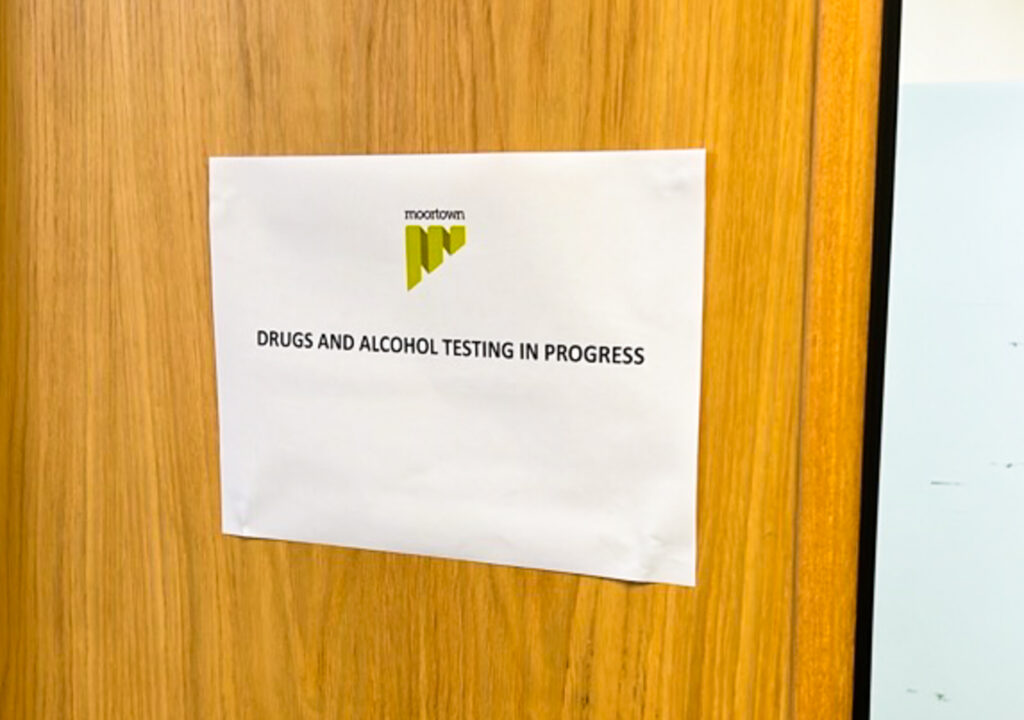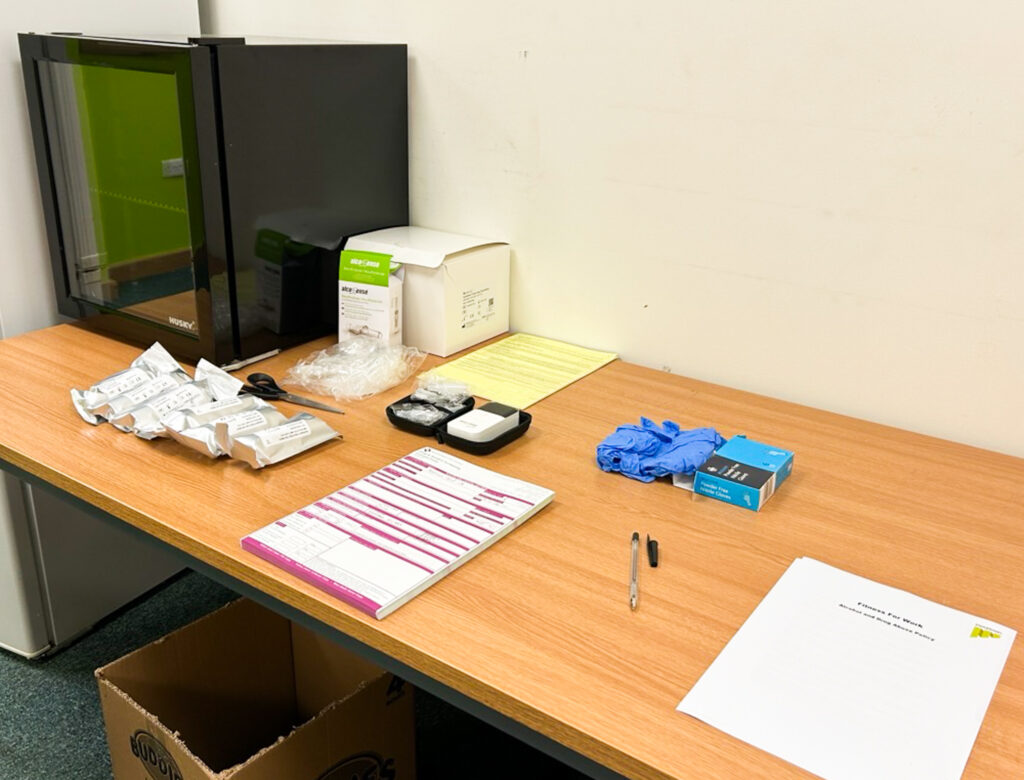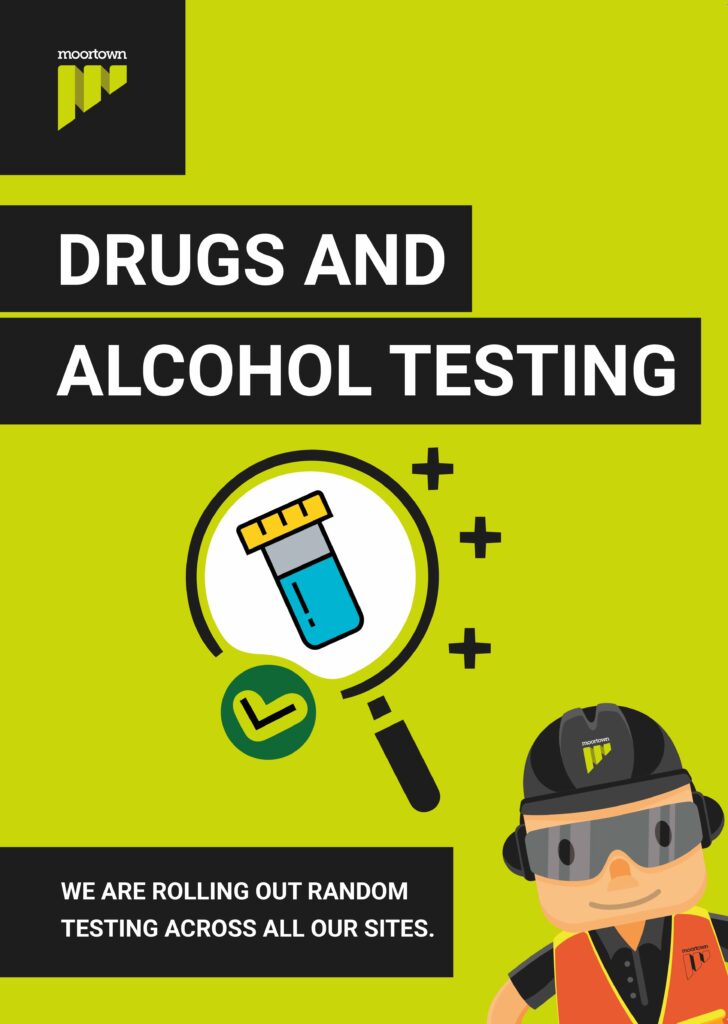Testing in progress

It’s essential that the reasons for conducting drugs and alcohol testing are clearly explained to the workforce and the correct testing equipment is used for this process. Drug and alcohol misuse is a serious societal problem and impacts the workplace significantly. Testing plays a vital role in order to ensure the safety of everyone at work.

Last year the Construction Leadership Council (CLC) were called to tackle on-site intoxication of plant operators.
Plant workers disclosed in a Considerate Constructors Scheme survey that:
- 59% had concerns over the effects of drugs and alcohol in construction
- 35% have noticed their colleagues under the influence
- 25% agreed that drugs and alcohol affected them at work through tiredness
Credit: https://constructionwave.co.uk/2023/04/19/drugs-and-alcohol-major-problem-on-site/
There is also a significant economic impact of substance misuse, with lost productivity due to alcohol in the UK costing around £7.3 billion per year in an impact assessment paper produced by the Institute of Alcohol Studies (IAS).
Credit: https://www.britsafe.org/safety-management/2023/drug-and-alcohol-testing-at-work-getting-started

Addressing the Issue
We recently took proactive measures at one fo our sites in the North East region, to mitigate the impact of substance use. These steps covered the following:
- Promoting a Safe Work Environment:
Enforcing drug and alcohol policies helps maintain a safe workplace, reducing the risk of accidents, injuries, and potential legal liabilities. - Enhancing Productivity and Quality:
By addressing substance use, employers can improve productivity, reduce errors, and maintain higher quality standards by ensuring that employees are working at their optimal level of performance. - Supporting Employee Well-being:
Addressing substance use issues demonstrates a commitment to employee well-being, providing opportunities for intervention, treatment, and support programs that can help individuals overcome addiction. - Attracting and Retaining Skilled Labour:
Creating a safe and supportive work environment sends a positive message to potential employees, making the company an attractive choice and increasing employee loyalty and retention rates. - Compliance with Regulations:
Employers have a legal obligation to ensure a safe working environment and comply with regulations regarding drug and alcohol use. Failing to address substance use can lead to legal consequences and damage the organisation’s reputation.
By prioritising employee well-being, safety, and productivity, employers can take proactive steps to address substance use, create a supportive work environment, and foster a culture that promotes responsible behaviours. It is essential to recognise the long-term negative consequences of neglecting this issue.
